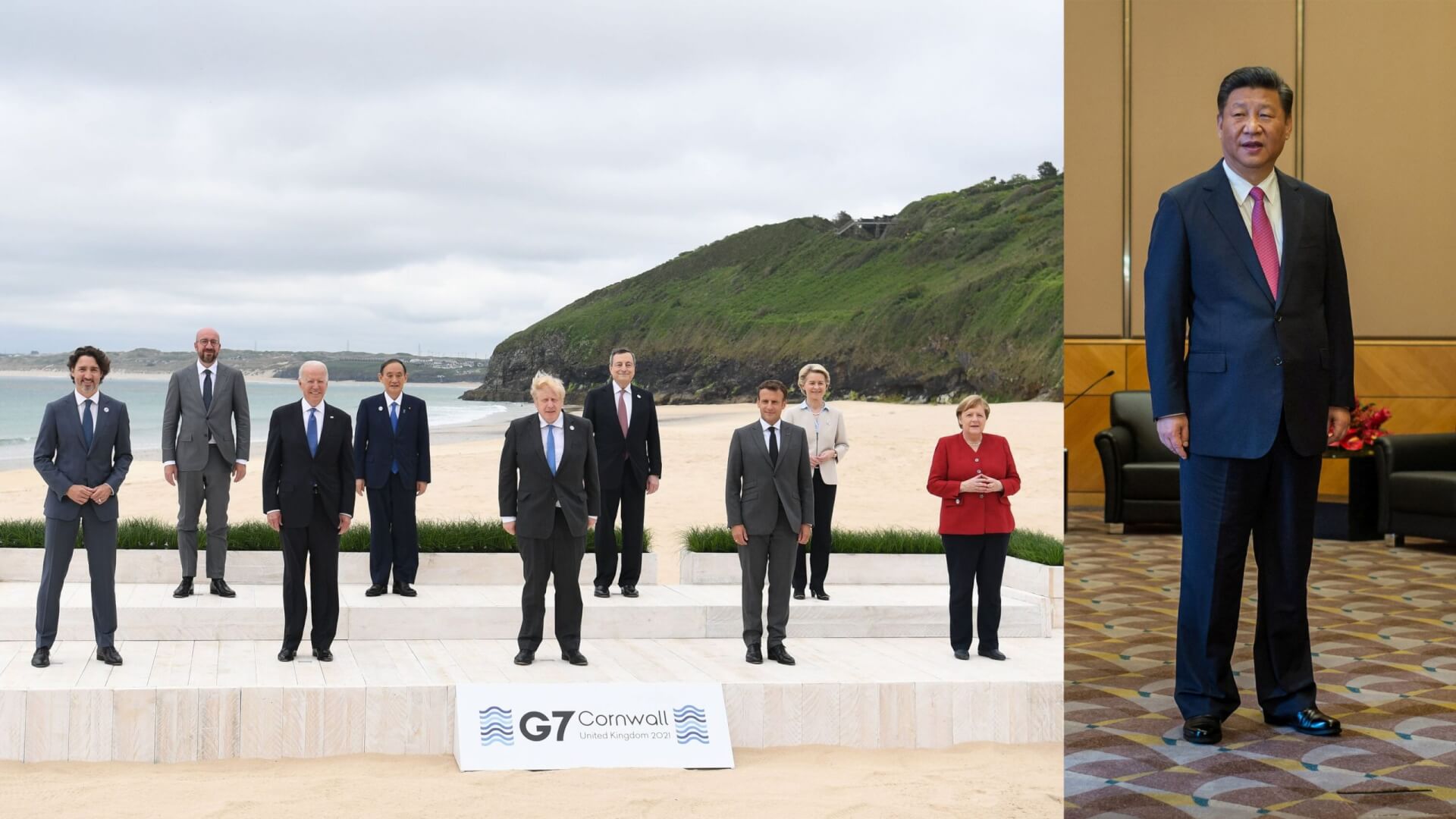After Taiwan won unprecedented support from the G7 countries during their weekend meeting in Cornwall, United Kingdom (UK), the Chinese-claimed island’s presidential office said it would be a “force for good” and continue to seek even wider international support.
According to The Japan Times, Taiwan’s reaction was prompted after leaders of the world’s major democracies chided China on Sunday over its human rights violations in the Xinjiang Autonomous Region (XAR), called for the preservation of Hong Kong’s high degree of autonomy, emphasised the importance of peace and stability across the Taiwan Strait, and opposed Beijing’s “unilateral attempts to change the status quo” in the East and South China Seas.
Also Read: UK, France Spar on the Sidelines of G7 Summit Over Macron’s Northern Ireland Statement
In response to this unified support for Taiwan’s stability and overall criticism of Beijing’s actions, Channel News Asia reported a spokesperson for the Chinese embassy in London as saying, “The days when global decisions were dictated by a small group of countries are long gone. [...] We always believe that countries, big or small, strong or weak, poor or rich, are equals, and that world affairs should be handled through consultation by all countries.”
However, Taiwan expressed deep gratitude for the overwhelming support from the world’s major democracies. Taiwanese presidential office spokesperson Xavier Chang said this was the first time that a communiqué released G7 member countries—whose shared basic values include democracy, freedom, and human rights—has stressed the importance of peace and stability in the Taiwan Strait and also included “content friendly to Taiwan.”
Also Read: SUMMARY: Australian PM Scott Morrison’s Meetings on Sidelines of G7 Summit
“Taiwan will certainly adhere to its role as a responsible member of the region, and it will also firmly defend the democratic system and safeguard shared universal values,” Chang said. He added that Taiwan will continue to deepen its partnership with G7 members and other like-minded countries and also strive for greater support from the international community. Chang also stressed that Taiwan will “firmly contribute the greatest force for good” for peace, stability, and prosperity in the Indo-Pacific region.
G7 members—the UK, the US, Japan, German, France, Italy, and Canada—have no formal diplomatic ties with Taiwan, like most other countries. However, the group has recently strengthened its backing for the island along with other Western allies by jointly opposing China. These efforts include the US pushing G7 countries to launch an infrastructure construction plan called the “Build Back Better World (B3W)” plan to counter Beijing’s ambitious Belt and Road Initiative, which has invested billions of dollars in infrastructure projects globally. Chinese state-owned media house Global Times expressed its apprehension in this regard, saying that “it is questionable whether it can really be carried out or achieve practical results”. It added that “The US is competing with China with its Cold War mentality.”
In the past, too, China has criticised the West’s involvement with Taiwan. While answering a question about the United States (US) meeting with Taiwan to resume the discussions on Taipei joining the Comprehensive and Progressive Agreement for Trans-Pacific Partnership (CPTPP), Chinese Foreign Ministry spokesperson Wang Wenbin on Friday said that China’s position on the Taiwan question is consistent and clear. “We firmly oppose all forms of official interactions between the US and Taiwan and reject any agreement with implications of sovereignty and of official nature between countries having diplomatic ties with China and the Taiwan region,” he added.
The latest statements against China are expected to cause further friction in its relationship with the West as both sides continue to constantly undermine each other’s influence through multilateral fora and other avenues.

